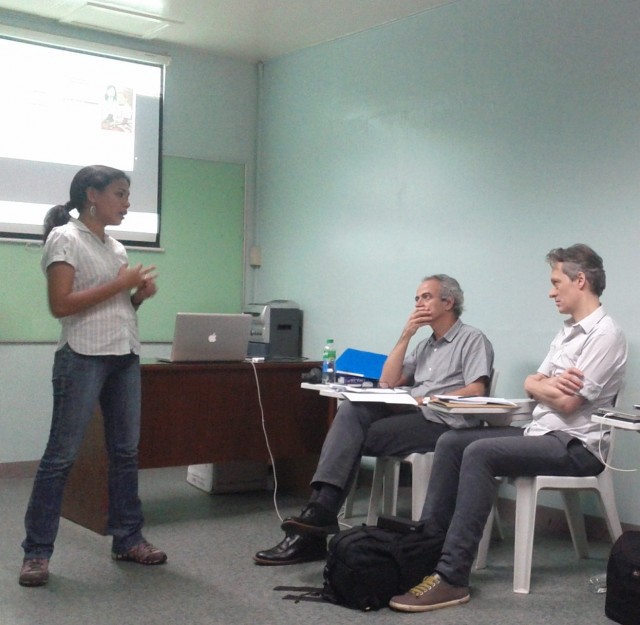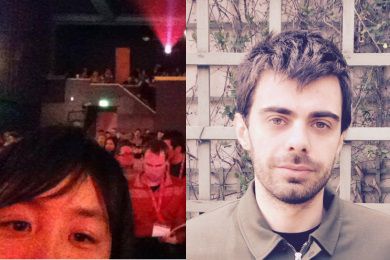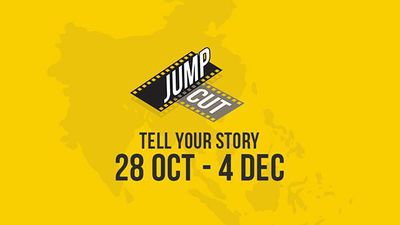By Kerrine Goh
08 May 2013
Constructive criticism will make you reflect harder on your project | Interview with Ilang Ilang Quijano

David Ocón has interviewed Ilang Ilang Quijano, one of the participants of ‘Catch-Tell-Transform: 4th Documentary Filmmakers’ Workshop’. Organised in Manila, The Philippines from April to October 2013, this unique initiative gathers young promising filmmakers from Southeast Asia to enhance their skills and build new audiences for their work. The project is supported through ASEF’s Creative Encounters: Cultural Partnerships between Asia and Europe programme.
During my visit to the documentary filmmaking workshop Catch/Tell/Transform in Manila I had the chance to interview Ilang Ilang, a young documentary filmmaker from the Philippines. Ilang Ilang is a representative of the new wave of emerging documentary filmmakers in the country. They are working with issues and topics never before treated by local filmmakers, some of them even long forgotten by society. Her project “Mothers of the Cordillera”, a film about indigenous women in Northern Philippines, who resisted mining, construction of dams and logging in their ancestral lands, promises to rescue one of those long-buried stories.
Q: Why did you decide to apply for Catch/Tell/Transform?
I applied for it because when I finished my first documentary, I quickly came up with another idea for a documentary. Later on at a pitching workshop in Jakarta, I presented my idea and I had a very positive experience there, I felt I knew how to sell the story I was thinking about, but the workshop did not include any funds for development, it was more a pitching exercise. So when the call for this workshop came, I applied so I would have the chance to finally do my project since it also offers a seed fund and could help me in the development, something very important after selling your story.
Q: What do you expect to get from this workshop?
Although filmmaking is a part of my profession as a journalist, filmmaking is not my full-time work. However after the first workshop, I learnt a lot from the mentors there, especially from Bettina Braun, and I feel this second workshop would equip me with the knowledge, the skills and the experience to be able to do a better documentary film. The previous film I did I think it was a successful one in its own little way, I learnt a lot with it but there are a few things I wouldn’t do now. I feel there is a lot of room for improvement and I would like to practice and apply what I learnt in the first workshop by making another film.
Q: I attended your pitching exercise for “Mothers of the Cordillera”. The pitch raised a lot of attention from the mentors and the participants. They asked many questions, gave feedback and suggestions, but also constructive criticism. How do you relate to such criticism? Is it useful for you? Will you apply some of what you learnt from it to your script and production?
This is why I am here in the workshop, to test my ideas against someone else’s. To test if what I think could actually work. The criticism and the comments are very useful for me; they are something I can think about and I take them as part of the learning experience. I won’t apply them immediately; I will take some time for me to think about them before applying them. But definitely I am grateful for the comments and criticisms, as long as they are constructive. In the end, they will make you reflect harder about your project.
Q: Last year’s workshop you were all Filipino participants. This year you have co-participants also from Indonesia, Cambodia, Bhutan and Singapore. How has this changed the dynamic of the workshop?
I think the workshop is more interesting than last year because it has other young filmmakers from other Southeast Asian countries. Last year we were all Filipinos and among us we tend to be fooling around a bit and maybe be less focused. Being surrounded by filmmakers from other countries makes you be more open to other ideas, to other cultures and the stories are much more interesting for us because they are new and different to us. It also makes the workshop more challenging, you are more motivated because there are people from other nationalities and you don’t want to disappoint them, it all becomes more serious but in a good way, it feels more professional.
Q: Being such a difficult craft, with such limited opportunities to get funding for, why did you choose documentary filmmaking?
Documentary filmmaking is not the only professional path I am taking. I am also doing journalism and advocacy, so documentary filmmaking probably won’t be my only life path, it is difficult to live only from it. But I think that ever since I got into it I have been really interested in improving myself in the craft and I think it is a very powerful way of telling stories. I discovered that documentary filmmaking, although difficult, is very special and very unique, and I am not going to let go off it, no matter what. The workshops are there to remind you of that, to push you, they make you not forget that your are the filmmaker, also that you can choose the way in which you want to tell the story and that only you can make this film true and that you have the responsibility to tell and keep that story you have chosen alive.
Catch/Tell/Transform is a workshop organised by the Goethe Institut Philippines, the Embassy of France and the Alliance Française in Manila, in collaboration with the University of the Philippines Film Institute. It has the support of the Asia-Europe Foundation (ASEF).
David Ocón has served as Head of the Cultural Department at Instituto Cervantes’ centres in Ireland and China. Previously he was a Project Manager at the Asia-Europe Foundation (ASEF), and a Communications Officer for the European Network of Cultural Administration Training Centres (ENCATC).
He has taught International Cultural Cooperation courses since 2008 at University of Barcelona, and has published academic articles in several international specialised journals and co-edited a number of publications and art catalogues. At present he is an arts manager, consultant and researcher based in United Kingdom.
Similar content
posted on
13 May 2013
posted on
25 Nov 2013
posted on
03 May 2013
posted on
29 Mar 2009
posted on
11 May 2016
posted on
25 Nov 2016





